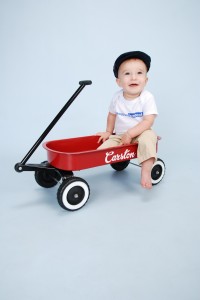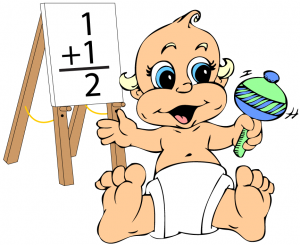Almost 9-months ago, right before my son was born, I blogged about how my work and my husband's work would impact our parenting. Obviously so much in our lives has changed since then-- yet much has remained the same. Various "family business" over the past week captures all of our various interests... and hint at Little Man Carston's future academic and extracurricular pursuits!
1) Economics- With the Chicago teacher's strike my economist husband's research on teacher evaluations has been back in the news. He spoke on the radio station WGBH about how similar issues might strike Boston over evaluation processes. His work also appeared in The New York Times again, described in Nicholas Kristof's September 12th column, "Students Over Unions," as "the gold standard study." Here is how Kristof described the work:
There’s now solid evidence that there are huge differences in the effectiveness of teachers, even within high-poverty schools. The gold standard study, by Harvard and Columbia University scholars and released in December by the National Bureau of Economic Research, took data from a major urban school district and found that even in the context of poverty, teachers consistently had a huge positive or negative impact.
Get a bottom 1 percent teacher, and the effect is the same as if a child misses 40 percent of the school year. Get a teacher from the top 20 percent, and it’s as if a child has gone to school for an extra month or two.
The study found that strong teachers in the fourth through eighth grades raised the game of their students in ways that would last for decades. Just having a strong teacher for one elementary year left pupils a bit less likely to become mothers as teenagers, a bit more likely to go to college and earning more money at age 28.
Removing the bottom 5 percent of teachers would have a huge impact. Students in a single classroom with an average teacher, rather than one from the bottom 5 percent, collectively will earn an additional $1.4 million over their careers, the study found.
2) Sociology- As the sociologist in the family I've also been speaking out, often on NECN's The Morning Show (for all of my recent clips, click here). Last Tuesday I spoke about the evolving meanings of 9/11 and how we can commemorate the day with a new generation of children.
Today I spoke about the powerful op-ed, written by Bill Lichtenstein and published in last Sunday's The New York Times,and how and why discipline in the schools has evolved over time.
There's been some controversy over "A Terrifying Way to Discipline Children," though the basic facts of what happened to Lichtenstein's daughter remain undisputed. For a good piece on the topic, see this Time article, along with Lichtenstein's own website, which provides commentary and links to both positive and negative pieces.
3) Sports- As I blogged last Thursday I reviewed a new sociology book on female sports fans on The Rumpus, mentioning my interest and John's interest in sports. No word yet on Carston's athletic preferences though.
4) Pageants- Last Thursday evening I was thrilled to help select two new Miss America system queens-- Miss University and Miss Strafford County-- who will go on to compete for the title of Miss New Hampshire 2013. I was impressed with so many of the people I met during the experience and I look forward to following their careers. The most interesting, and difficult, part of the pageant wasn't the swimsuit competition, it was the interview. Going through it, it's easy to see why the process of competing for Miss America is one very long job interview.
While we don't yet know which social science will most interest Carston-- or if his primary interests will be around education, sports, or pageantry-- we do know that he is already a media maven. He especially loves social media, as his onesie reveals. My Little Man, who is "Famous on Facebook," got this new portrait taken last week in between Mommy and Daddy's media appearances!
Can't wait to see who he will become!

